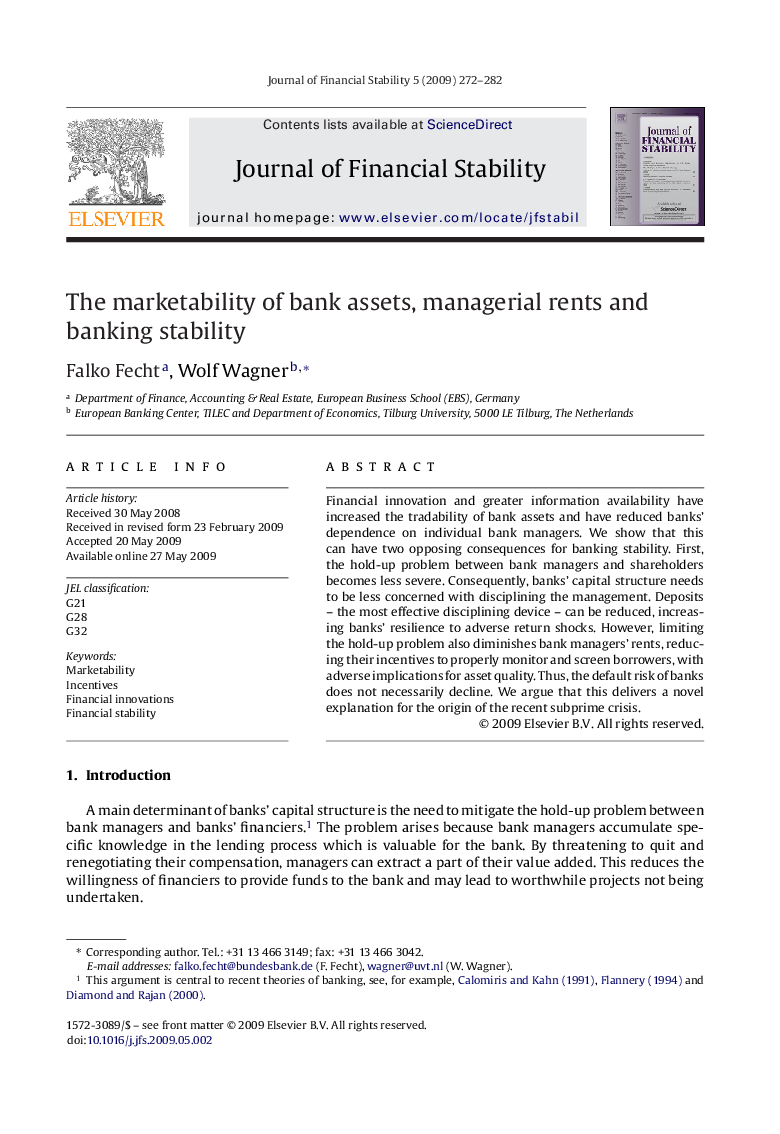| Article ID | Journal | Published Year | Pages | File Type |
|---|---|---|---|---|
| 998499 | Journal of Financial Stability | 2009 | 11 Pages |
Financial innovation and greater information availability have increased the tradability of bank assets and have reduced banks’ dependence on individual bank managers. We show that this can have two opposing consequences for banking stability. First, the hold-up problem between bank managers and shareholders becomes less severe. Consequently, banks’ capital structure needs to be less concerned with disciplining the management. Deposits – the most effective disciplining device – can be reduced, increasing banks’ resilience to adverse return shocks. However, limiting the hold-up problem also diminishes bank managers’ rents, reducing their incentives to properly monitor and screen borrowers, with adverse implications for asset quality. Thus, the default risk of banks does not necessarily decline. We argue that this delivers a novel explanation for the origin of the recent subprime crisis.
